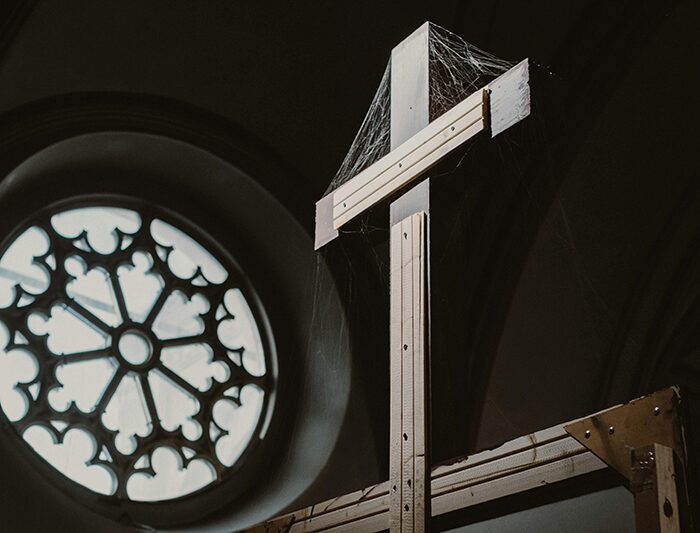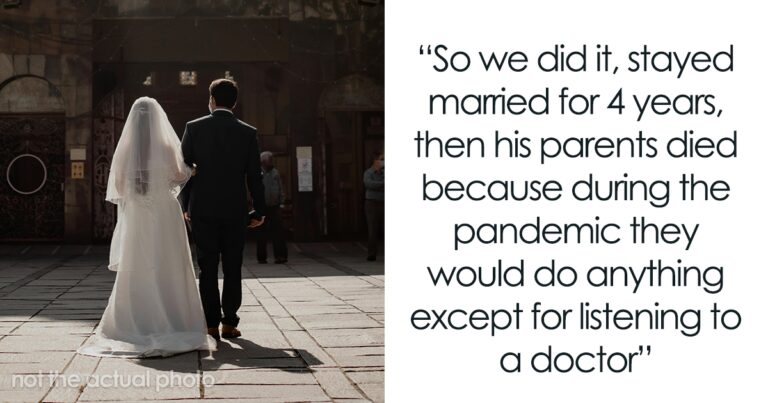Marriage and love often go hand in hand—but not always. For Reddit user Proud_Pay_2128, marriage wasn’t about romance but escape. She and her gay best friend wed not out of passion, but as a desperate attempt to leave their restrictive religious community.
For four years, they lived a carefully constructed lie, posing as a traditional couple while quietly embracing their newfound independence. But eventually, the truth surfaced, sparking a wave of mixed reactions. Some saw their marriage as dishonest, while others sympathized, understanding the extreme lengths people go to for freedom.
The emotional weight of this deception took its toll. Dr. Stephanie Bloodworth, PsyD, LMFT, a licensed marriage and family therapist, explains that while marriages of convenience offer short-term safety, they often bring long-term psychological consequences.
Two childhood friends tied the knot—not for love, but as a daring escape from their strict religious upbringing.












Not every marriage is built on romance—sometimes, it’s about something else entirely. OP recently shared her unconventional love story, never expecting it to go viral.
She and her ex-husband got married for convenience, not love, but despite that, she never felt like she was missing out. “We genuinely helped each other, and we were both free to explore relationships with other people,” she explained. Ironically, her husband ended up dating more than she did, but she didn’t mind. “It was just fun.”
Their relationship was unique, but in many ways, healthier than most. There were no fights, no jealousy, just mutual support and companionship. Even when they decided to part ways, there was no bitterness. In fact, they celebrated their divorce together. “I still love my ex-husband in my own way, and I love having him and his boyfriend in my life,” she shared.
Leaving her marriage also meant leaving behind a strict religious upbringing. Going no-contact with her family was tough, but ultimately, the best choice. “I’ve always been the black sheep anyway,” she admitted. “I don’t really care about anyone back home, but I’d be lying if I said I wasn’t a little scared.” Fortunately, her ex-husband has remained a source of support, helping her through this transition.
Looking back, she has no regrets. While some might see her marriage as unorthodox, for her, it was perfect. “It worked so well because we weren’t in love. We just had each other’s backs,” she reflected. Now, she’s happy with her life and isn’t interested in dating or marriage again. “I don’t think I can top that kind of connection, so why even try?”
“In many lavender marriages, the partners forge a strong foundation of trust, companionship, and unwavering respect.”

Not all marriages are based on romance—some are built on deep friendship and mutual protection. A lavender marriage is one such arrangement, where one or both partners marry to conceal their true sexual orientation. The term dates back to 1895, when the color lavender became linked to homosexuality in British culture. While these marriages were once a survival tactic, particularly in early Hollywood, they still exist today for personal, cultural, or societal reasons.
Relationship expert Paula Thompson explains that partners in lavender marriages often share a profound bond of trust and support, even if romance is absent. “They understand the complexities of their arrangement, which fosters a unique kind of emotional intimacy,” she says. This understanding can create a lasting partnership that works in ways traditional marriages sometimes don’t.
However, the reality of these unions isn’t always easy. Living a double life can take a toll, leading to feelings of isolation, guilt, or frustration. While a lavender marriage may provide security and companionship, it can also leave individuals longing for a romantic connection they’ve sacrificed. For some, this arrangement offers stability; for others, it’s a stepping stone toward embracing their true selves openly.
Not everyone longs for passion or dramatic displays of affection in a relationship.

Marriage has long been portrayed as a grand romantic journey filled with passion and deep emotional connection. But for some, it’s less about fireworks and more about stability and mutual benefit. A marriage of convenience can provide exactly that—offering a partnership based on shared goals rather than love. “These unions are entirely about what the connection provides—whether to the couple, their families, or even a larger cultural structure,” says Dr. Stephanie Bloodworth, a licensed marriage and family therapist.
Historically, marriage wasn’t about love at all—it was about survival, politics, and financial security. Even today, people enter these unions for practical reasons, whether it’s to solidify a business partnership, gain legal benefits, or maintain a socially acceptable image. While love-based marriages have become the norm, pragmatic relationships still hold significant value for those who need them.
For some, having a reliable and supportive partner outweighs the unpredictability of romance. These partnerships remove the risks of heartbreak and emotional distress, allowing both people to focus on their personal ambitions, financial well-being, and overall stability. When built on honesty and mutual respect, this type of marriage can offer a strong foundation without the complications of fleeting emotions.
At the end of the day, marriage is personal, and success looks different for everyone. As Dr. Bloodworth notes, the most important thing is that the relationship works for the people in it, regardless of what society expects. If two individuals find comfort, security, and purpose in their arrangement, then that’s all that truly matters.
The author shared additional details in the comments.



The readers supported the author.














0 Comments